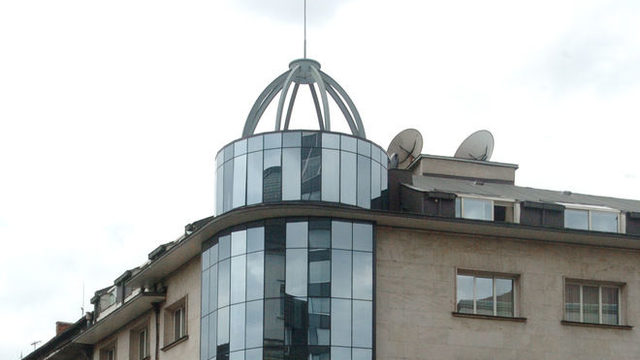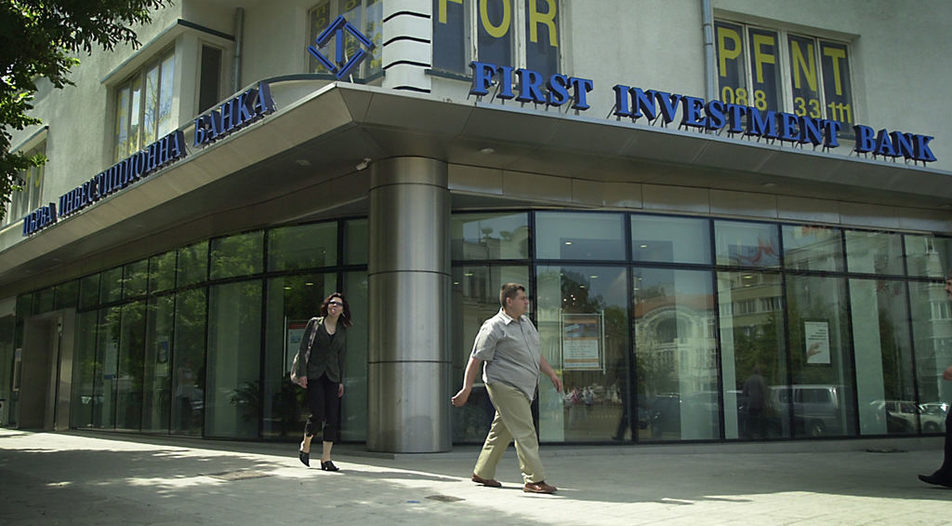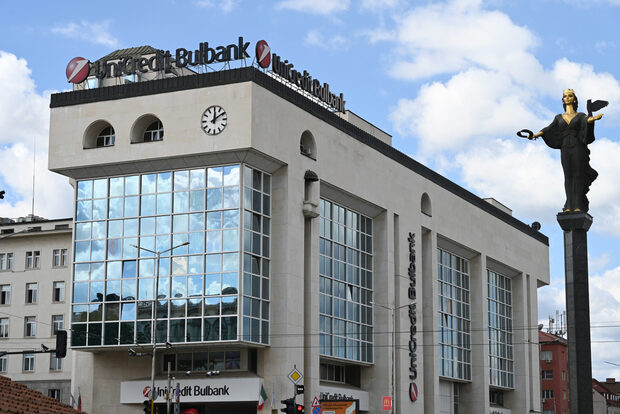In 2016, when the asset quality of the Bulgarian banking sector was scrutinized by external auditors (an unprecedented procedure supervised by the country's central bank), two banks emerged with noticeable deficiencies in case of systemic distress.
One of them was First Investment Bank (Fibank), Bulgaria's third largest lender by assets, which has a history of bailouts in the last 10 years. The bank had been bailed out with public support twice by two governments - in 2008 and in 2014, and there have always been concerns about its stability.
To address the findings of the Asset Quality Review (AQR), Fibank was prescribed to build up its capital buffers and in April 2017 was given a deadline to fulfil the task. When the day came, it became evident that not much had been done up to that point and the real work still lies ahead.
To lower risks, Fibank had to retain and capitalize profits and de-risk its loan portfolio (especially in the corporate segment) by selling some assets. Last but not least, the bank was advised to enter into strategic partnership for a further capital increase. The advice was followed and Fibank hired Citigroup Global Markets as a consultant to steer a possible deal by the end of 2017.
According to some sources, there are indications of interest from three US-based investment funds with Ripplewood Holdings among them. People familiar with the matter say that it will be no surprise if the final deal is for the purchase of a majority stake in Fibank, because the current majority shareholders - Tseko Minev and Ivaylo Mutafchiev, have realized they could not support the bank's growth anymore. In addition, institutional pressure has reached an all-time high.
Resolution still in progress
In April, instead of reporting that the prescribed measures had already been implemented, Fibank and BNB simultaneously announced that the resolution procedure is about to begin. The delay was a sure signal that Fibank can't meet the regulatory requirements on its own.
A month later Fibank announced that it had begun to explore "strategic options for development", retaining the services of Citigroup Global Markets as a financial advisor. Those options may include strategic partnership (or partnerships) and/or consolidation, attracting key investors, and a capital increase via new share issuance. All of them would support the bank's growth strategy in retail and small and medium enterprise (SME) banking, Fibank stated in a press release.
The process will take some time. The consultant needs to understand the bank's weak and strong sides, then to prepare a teaser for potential investors, to organize an initial price offering and conduct due diligence. Under the most optimistic schedule, new investors could enter Fibank by September. The bank's large retail business, which generates interest income and profit, could be attractive for strategic investors, financial funds and some of the top foreign banks, which might decide to enter the Bulgarian market or to consolidate the positions of their branches in the country.
At the end of May, Fibank's general shareholders meeting approved a proposed capital increase of up to 201 million levs. Part of the money will come from capitalization of the bank's profit. The shareholders decided that Fibank will distribute no dividend and will instead retain the profit for 2016 (90.1 million levs) and for 2017 (18 million levs in Q1). The rest of the capital injection will come from the issuing of 100 million new shares with a par value of 1.0 lev apiece.
The decision of the shareholders is a clear indication of the capital hole in Fibank that needs to plug. However, it is not clear yet how much additional capital will be needed to fix the bank's problems.
There is potential, but
Probably, Finbank has a lot of potential to grow if it directs its marketing strategy away from the business of its main shareholders. The bank is a popular retail name, it has a wide deposit base and entered very early into the on-line banking business.
But there are some drawbacks, too. Тhe new shareholder should be prepared to meet a large number of non-core shareholders. If the newcomer acquires more than 33% of the bank, it will need to offer a buyout option to more than 3 000 minority shareholders who own 15% of the bank's capital among themselves. The remaining majority stake is evenly split between the Fibank founders Tseko Minev and Ivaylo Mutafchiev, who own 42.5% each.
According to sources, Minev and Mutafchiev are ready to shed their entire ownership and there is a willing buyer - Ripplewood Holdings. The US-based fund has strategic investments in distressed assets with the
Long-Term Credit Bank of Japan and Latvia's Parex Banka among its success stories in the financial sector. The company has declined to comment.
If events unfold in this direction, it will be the second attempt for a significant change in Fibank's ownership structure. The first one dates back to 2008, when Fibank was offered government support to survive a bank run. It did not materialize, because the two major shareholders demanded half a billion euro for their shares.
Now, the demise of Corporate Commercial Bank (the other big Bulgarian bank with domestic ownership which collapsed in 2014) might have paved the way for a deal.
BULGARIAN BANKS SHOULD ESTABLISH A NEW LIQUIDITY SUPPORT FUND
THE IMF AND THE WORLD BANK RECOMMEND THAT THE NEW FACILITY SHOULD COMPLEMENT THE EXISTING ONES IN A CASE OF CRISISBulgarian banks should establish a brand new fund for liquidity support, according to the International Monetary Fund and the World Bank. Their Financial Sector Stability Assessment (FSSA) report published in May, recommends the set up of a facility financed by the commercial banks and the Bulgarian National Bank, to complement the other two: the Bulgarian Deposit Insurance Fund and the Bank Restructuring Fund. The Ministry of Finance would be given the statutory authority to borrow and lend for fi nancial stability purposes through the BNB. Furthermore, the authorities could arrange swap lines with international fi nancial institutions such as the Bank for International Settlements and major central banks such as the European Central Bank. As it became evident in 2014, in times of liquidity pressure on banks, severe liquidity constraints occur particularly for domestically owned banks. Financial support from the government is subject to EU stateaid procedures, and approval from the EU and the national parliament, which adds to the decisionmaking time, says the FSAA.
It is recommended that BNB should adopt a strategy to achieve a substantive reduction in NPL levels over a 3-5 year time horizon. It may include loan write-offs, loan-loss provisioning and collateral valuations, early supervisory reporting and risk disclosure. As banks prepare for the adoption of the new accounting standard IFRS 9, they need to adapt provisioning practices to better recognize loan deterioration using forecasts. Estimated impact of the new regulation which comes to force in 2018 is an increase of the bad loan losses by 18-33% from their current levels.
PIRAEUS BANK TO SELL ITS BALKAN BUSINESS
THE GREEK BANK NEEDS TO FIND 13 BLN EURO TO SHORE UP ITS DOMESTIC BUSINESSGreece's Piraeus Bank is working on a plan to sell its Balkan business in three years, the new chief executive officer Christos Megalou has told reporters. The plan includes the banks in Bulgaria, Romania, Serbia, Albania, Ukraine and some other assets such as a 40% stake in the shipping company Hellenic Seaways and 33% stakes in the fish farm Nireus Aquaculture and Selonda. The aim of the plan is to shrink the bank's bad debt portfolio from 33.3 billion euro to below 20 billion euro and to generate resources for its core business in Greece, where Piraeus is the biggest lender.
There is no offi cial information about such intentions in the group that concern our business, said Emil Angelov, CFO of the Bulgarian subsidiary. He said that no due diligence has been conducted and no advisor has been hired for the bank which is №10 by assets on the Bulgarian market. Angelov noted that the restructuring plans of the four biggest Greek banks aim to reduce their overseas business, but not necessarily by shedding all profi table entities.

In 2016, when the asset quality of the Bulgarian banking sector was scrutinized by external auditors (an unprecedented procedure supervised by the country's central bank), two banks emerged with noticeable deficiencies in case of systemic distress.
One of them was First Investment Bank (Fibank), Bulgaria's third largest lender by assets, which has a history of bailouts in the last 10 years. The bank had been bailed out with public support twice by two governments - in 2008 and in 2014, and there have always been concerns about its stability.











